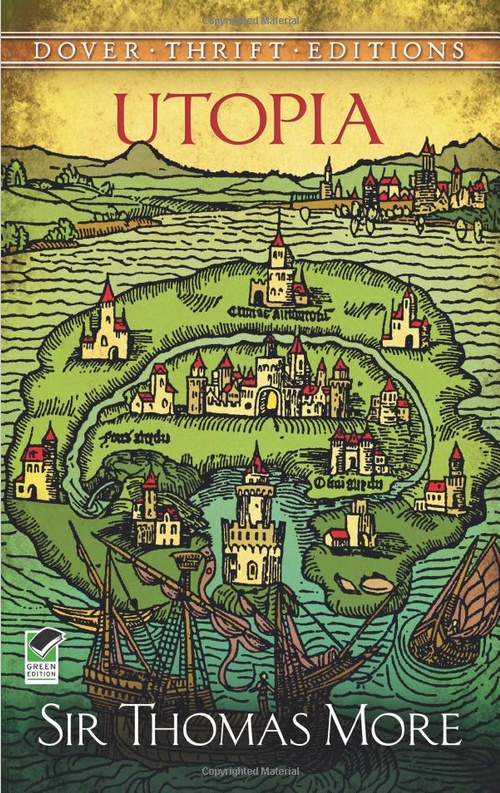

The implications of this form of public life are significant: All goods are held in common and dispensed freely. This primary organizing principle of Utopia is the elimination of private property. I've chosen to organize his narrative according to four principles Throughout the second book, Raphael helps More visualize the perfected story by sketching his recollection of a distant island: Utopia.

This is not mere fancy, Raphael reminds his friend the good life can be realized, if it can be visualized. No improvement in public life can occur without the elimination of social illness at its deepest level. 64)! Raphael concludes Book One of Utopia by responding that cures for social ills demand systematic healing of the body politic. For things will never be perfect, until human beings are perfect - which I don't expect them to be for quite a number of years" (p. More responds that social reform is a pleasant ideal, but that conservatism more appropriate to these precarious days: "what you can't put right you must try to make as little wrong as possible. Referring to Plato's Republic, Raphael notes that the likelihood of a king acting as a philosopher, or merely tolerating one, is coincidental at best: "I'd be promptly thrown out, or merely treated as a figure of fun" (p. When More asks if he might serve as counselor to some king, Raphael responds that no king or court would tolerate a counselor who might challenge their strongly (and wrongly) held assumptions. Of course, Raphael remains an outsider to civilization - despite his wisdom. Moreover, these ills produce a subjugated people: "you create thieves, and then punish them for stealing" (p. The seizure of land by oligarchs, the maintenance of a wasteful standing army, the practice of gambling and gratuitous ornamentation - all of these social ills lead to a sick society, according to Raphael. Raphael illustrates this rebuke by noting that thieves in English society are executed when, instead, they should be pitied and helped. Even Tudor England offers little in the form of civilization. Before long, it becomes clear that Raphael offers shrewd analysis of various communities around the globe - and that he finds most of them to be faulty in some way. After all "There is never any shortage of horrible creatures who prey on human beings, snatch away their food, or devour whole populations but examples of wise social planning are not so easy to find" (p. Even monsters are hardly worthy of concern. Raphael is a traveler who has seen much of the world yet is impressed by little of it. The books begin a conversation between Thomas More and Raphael (Hebrew for 'God has healed'). Unlike Plato's Republic, a largely abstract dialogue about justice, Utopia focuses on politics and social organization in stark detail. Summary of Thomas More's - Utopia Utopia (published in 1516) attempts to offer a practical response to the crises of the fifteenth and sixteenth centuries by carefully defining an ideal republic.


 0 kommentar(er)
0 kommentar(er)
